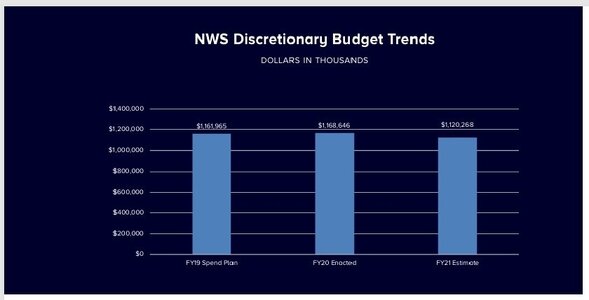Interesting insights,
@Jason N. I think the vast majority of what you are saying makes a great deal of sense. Certainly it would seem that there needs to be more focus on operations, since the operational side seems to be where things have been breaking down.
I would like to respond to one question you asked: "why are people complaining about Doge when the problems existed before it was even a thing?" I think the answer is that you do not fix something by taking resources away from it, especially when it ends up being almost totally on the basis of who is easiest to fire, not who is doing the best job. What is needed is not that kind of blind cutting, but rather a shakeup within the organization so that resources are used more effectively. And DOGE did not even try to do that. I agree with you that problems existed before DOGE, but the problem is that the approach that was used in DOGE did nothing to help with the problems and likely made them even worse, e.g. by some offices having to shut down at certain times.
John,
thanks for the reply, and fair point about budgets. I will reply with this. At some point, I think we have to separate the budget issue from quality of the resource contained within it. you can Amp up budgets and still get a crappy product, so how is that helping? what's the root issue.
I think that was my main point to make about DOGE, if someone can present a historical budget map of NOAA from 2000-2024, I would imagine that budgets have probably gone up NOAA wide. So, where did that money go and did the NWS maintain or increase its performance with bigger budgets?
Now, you can separate out People from technology here for a moment because there will always be a need for computer modeling, so while I am unsure of the details of modeling budgets, I can say from the Military side, we budget annually for the cost of doing business with the government and academia partnerships , and in the past 15years or so, we have continued to downsize in personnel. Yet we perform at high levels of Warning and Mission success all of the time.
So, technology is only part of the success of getting a warning issued successfully. The other half is people.. I will leave out the Bureaucratic machine, because I will imagine there needs to be some limited function and bureaucratic connection in a government run/funded agency, I would also contend, that there is probably layer upon layer of bureaucratic offices that probably don't even need to be inside NOAA, the mission is to make Warnings more accurate not sit on some committee or department sucking up GS14/15 money and not really doing anything but being one of 6,10,14 mid to high level division leads or deputy program managers. Perhaps DOGE is needed, even if it's temporary in nature focused on limiting that side of it. However, I will agree that a blind brush cutting effect isn't popular or successful either if it is in fact a blind brush cutting.
the truth is, it comes down to people giving a crap, training, mission, and if your budget goes down because an administration doesn't like climate change now, so what......
is the successful issuance of warnings inherently related to climate change policy? I am going with, I hope not... (let me say, I totally respect everyone who wants to earn a living doing this work in today's economy, but maybe you shouldn't get to earn a living if you can't perform your inherent mission, so there have to be consequences and impacts somewhere??)
I believe, but I am not 100% sure here, but on average, NWS employees beyond the initial 2-3yr training pipeline from GS 7/9/11, settle out mostly at the 12 and 13level for a good chunk of their careers, so somewhere in there is a GS12/13 is making 80-100K+, not doing their job of issuing a timely warning?. So, is it because they are saturated with too many other responsibilities?, then where is the NWS/NOAA fixing those capacity/capability/responsibility issues? when was their last manpower study? and while I do not know the current state of NWS employee pools, I know that recently, say in the last 5-10yrs there was a fairly major turnover in experienced employees that retired.. and perhaps the new breed is suffering from inexperience and possibly other issues? but again, that is conjecture to a point, but I have heard it may be part of the issue.
Meanwhile, the military is paying people 40 to 80K with the majority of the work being done with people making less than 60K protecting hundreds of billions of dollars in assets performing at an on average rate of about 80% success "globally". One might argue that we don't protect the public in the same way, we just protect our people and our assets over small areas, which isn't true at all ( the military is its OWN Aviation Weather Center, and its own NWS on a smaller scale, so those arguments don't matter, if you change the Area of Interest, and its geography, all your changing is the importance of the mission and why and what you're doing it for. You would get the same result. My point here is, There is a talent pool available, and I believe it would be in NOAA's best interest to pick from it and more than just from the WMO or Degree Pedigree standpoint.

